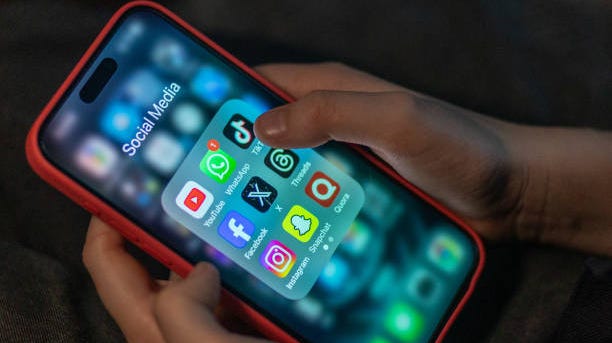The U.S. Supreme Court ruled against conservatives who are claiming harm from social media companies. What will happen to a separate Florida case?

Florida passes bill to ban kids under 16 from using social media
Florida lawmakers have approved a bill that would implement one of the strictest bans on social media use for minors in the country.
unbranded – Newsworthy
In a move that Gov. Ron DeSantis says “rubber stamps” government censorship, the U.S. Supreme Court has ruled against conservative states that accused the Biden administration of unconstitutionally pressuring social media platforms to smother content.
The Department of Justice has maintained nothing improper happened, that federal government officials largely flagged to companies instances of “harmful falsehoods” about topics including COVID-19 and the 2020 presidential election. But many on the right say the actions represented the unfair targeting of conservative views.
“The Court is telling would be censors: you can’t directly censor speech but if you pursue a sophisticated plan with enough subtlety you can get away with doing indirectly what the Constitution clearly forbids you from doing directly,” DeSantis said on social media.
But in a 6-3 ruling released Wednesday, the justices said lower courts had erred in siding with the GOP challengers, including the attorneys general of Louisiana and Missouri.
“The plaintiffs emphasize that hearing unfettered speech on social media is critical to their work as scientists, pundits, and activists,” wrote Trump-appointed Justice Amy Coney Barrett for the majority. “But they do not point to any specific instance of content moderation that caused them identifiable harm.”
The case is of special note to Florida, which is awaiting a Supreme Court decision on a separate social media case with big First Amendment stakes.
Florida’s solicitor general appeared before Supreme Court justices in February to defend a state law passed several years ago that prevented social media platforms from suspending or banning political candidates, penalizing offenders with lofty fines. It additionally allowed Floridians to sue those platforms if they’d been unfairly banned.
The law came in the months after the Jan. 6, 2021, Capitol insurrection and the social media suspensions of people, like former President Donald Trump, who made false claims of a stolen election.
Groups representing social media companies sued, and lower federal courts blocked central parts of the law, saying platform moderation is protected by the First Amendment.
Henry Whitaker, the solicitor general, said platforms that millions use didn’t have a First Amendment right to “use their services as a choke point to silence those they disfavor,” as previously reported by the USA TODAY NETWORK-Florida. Whitaker painted the platforms more as telephone operators than newspapers, which have more moderation discretion under law.
But the companies and the Biden administration said social media had the same protections as newspapers and the restrictions would be unconstitutional as a result.
Texas joined Florida in those arguments, which argued on behalf of a challenged law that barred big social media platforms from banning users for their viewpoints.
The decision, whenever justices release it, could set a powerful precedent on speech protections, both for social media companies – and the people using them.
First Amendment-related laws coming: New laws that involve the First Amendment are soon taking effect in Florida
This reporting content is supported by a partnership with Freedom Forum and Journalism Funding Partners. USA TODAY Network-Florida First Amendment reporter Douglas Soule can be reached at DSoule@gannett.com.
Source link : https://www.tallahassee.com/story/news/politics/2024/06/28/florida-social-media-law-supreme-court-ruling/74230634007/
Author :
Publish date : 2024-06-28 05:15:16
Copyright for syndicated content belongs to the linked Source.